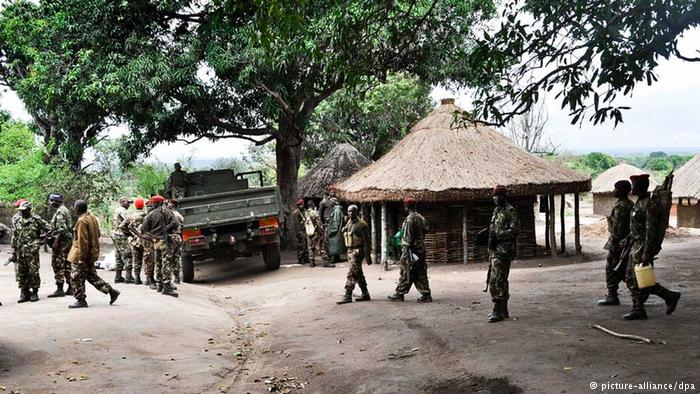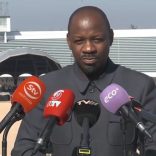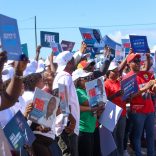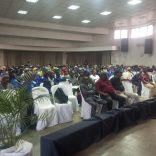Mozambique: Secretary of State for Foreign Affairs visits South Africa
Mozambican expert says crisis in military withdrawal is the result of a “gentlemen’s agreement”

DW / Defence and Security Forces in Sadjungira, central Mozambique
Lack of detail in the peace talks are at the heart of disagreements on withdrawals from military positions, Silvestre Baessa, a Mozambican expert on good governance, says, and there still lacks consensus in Frelimo on the matter, he points out.
Peace talks in Mozambique are currently being characterised by conflicting statements from the opposing sides. On the one hand, the government insists that it has withdrawn from military positions in Renamo stronghold, but the country’s largest opposition party denies this.

DW Africa interviewed governance expert Silvestre Baessa on the subject.
DW Africa: What assessment do you make of these disagreements in the context of peace negotiations hitherto considered to be moving in the right direction?
Silvestre Baessa (SB): I think this is a direct result of another gentlemen’s agreement with little technical detail. At least, officially, there are no details of what the agreement implies apart from the demilitarisation and movement of positions. On the other hand, it is an agreement that is being monitored by the parties directly involved, with no third party, national or international, to verify compliance with this agreement or able to give us a different version. And thirdly, it does not seem to me that this verbal agreement, looking at the [available] information, especially on the side of the government, has been ratified at the highest level of the party [Frelimo].
One of the great challenges that President Nyusi faces is being able to impose himself in government, especially on the Defence and Security Forces. But he has been making significant progress. But as long as this agreement does not get the consensus of all the groups, especially those who still believe in the possibility of destroying the Renamo military machine, I think it will always be difficult to have effective implementation of what was agreed with the government.
DW Africa: The Minister of Defence wants Renamo to disarm. Do you think Renamo would give up one of its greatest trump cards?
SB: I do not think so, because weapons are characteristic of mistrust, and Renamo’s distrust of the government and above all of the Defence and Security Forces is enormous. As long as confidence remains nascent, Renamo will try to hang on to its strongest element: its weapons. The issue of demilitarisation is only one part of a whole negotiating package. There is the issue of decentralisation, which is not well understood at what stage it is, so the question of military tension at this time is dependent on other factors. Then Renamo can accept part of this government requirement and vice versa.
DW Africa: There are those who see Renamo’s complaints as a sign of its political-military fragility. Is this evaluation justified?
SB: I think that the military option is always the last option. This is the argument Renamo has been exploring over all this time, but it is not sustainable. There are several elements of Renamo’s fragility that make me agree with your argument. First, Renamo president Afonso Dhlakama is no longer fifty years old, and the physical and mental exhaustion of a lifetime of struggle is beginning to tell. The people surrounding him, especially his most faithful followers in the military wing of Renamo, are also no longer prepared to face long, low intensity war situations such as this.












Leave a Reply
Be the First to Comment!
You must be logged in to post a comment.
You must be logged in to post a comment.